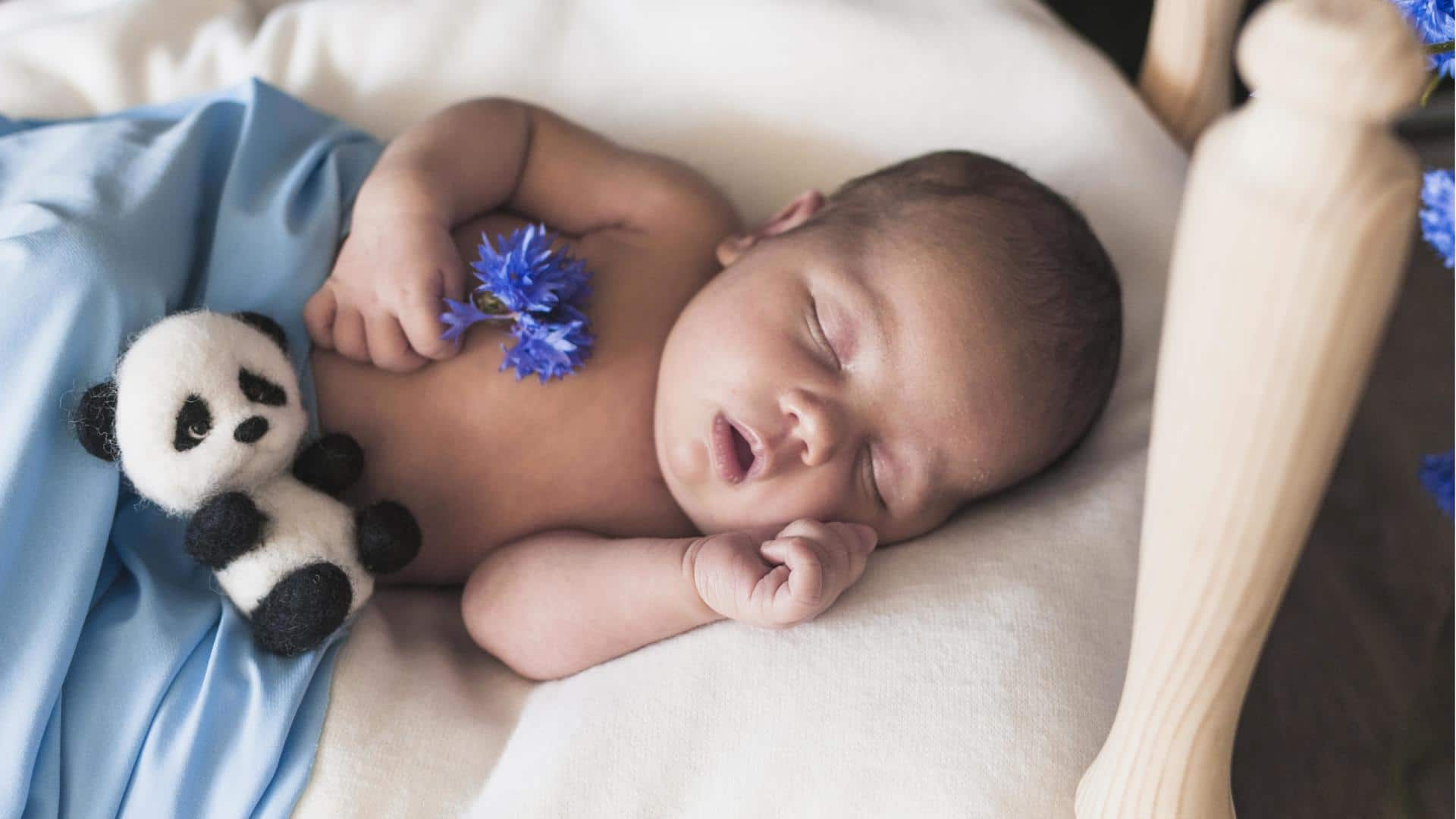
Follow these tips to keep your sleeping baby safe
What's the story
Babies face high risks of injuries or accidental deaths from suffocation or strangulation while sleeping. Research reveals that approximately 3,500 babies in the US perish unexpectedly during sleep each year. In India, statistics from 2019 indicate a rate of 32 infant deaths per 1000 live births. Hence, it is crucial to establish a safe sleeping environment for your baby, to prevent such unfortunate incidents.
Sleeping position
Put your baby to sleep on their back
One of the safest sleeping positions, putting your baby to sleep on their back can prevent the risk of them falling accidentally. Once they start to roll over at around four-six months, always put them to sleep on their back instead of on their tummies or sides. Don't worry, the baby's airway anatomy and gag reflex will prevent them from choking on their spit-up.
Sleep surface
Make them sleep on a firm surface
Instead of making your baby sleep in pillow-top mattresses, make them sleep on a flat and firm surface that will not indent when they are resting on them. You can go for a bassinet or a portable crib with a firm mattress and a tight-fitted sheet. Ensure that there is no large gap between the sides of the crib and the mattress.
Accidents
Keep away soft objects from your baby's sleep area
Soft objects like pillows, blankets, soft toys, quilts, comforters, and mattress toppers can increase your baby's risk of suffering suffocation or entrapment. Therefore, avoid putting anything around your baby's sleep area to prevent accidents. If you are worried about your baby catching a cold, dress them up in warm clothing. However, do not make them wear more than one layer while sleeping.
Room temperature
Set a comfortable and cool room temperature
Your baby can feel uncomfortable if the room temperature is too cold or hot. If the room turns too hot during the summer season, it can suffocate your baby and cause choking or even infections. The room's temperature must be between 20-22 degree Celsius to help your infant get a sound and comfortable sleep. Also, ensure that you don't smoke around the room.
Room share
Share the room with your baby
Instead of allotting a different room for your baby, have them sleep in your own room for at least the first six months, but not on the same bed. You can place their crib or bassinet close to your bed so that it also makes it easier for you to feed or comfort them when required and keep a watch on them.